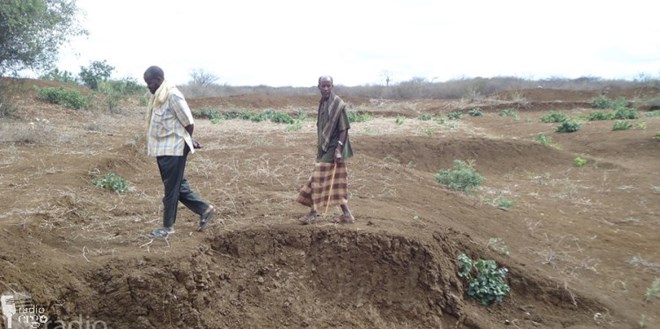Ali Hussein Yussuf’s most recent attempt to cultivate his three hectares of land in central Somalia’s south Mudug resulted in the destruction of the 25 kg of beans, maize, sesame, and watermelons he had planted. In the drought-stricken soil, all of the plants died.
Ali, his wife, and their 11 children are now crammed into a room at his uncle’s house in Amara, two kilometers distant, after evacuating the farm. He brought his 30 goats with him, but they’re all too frail to butcher or sell.
He feeds his family by purchasing food on credit from a nearby store. His total debt presently stands at $457. He is concerned that he may be barred from acquiring any more food. Hetried to look for work but could not find a job.
“We used to get seeds for planting from our farms, because we divided the produce into two, one for sale and domestic use and the other for planting. As we did not harvest anything in the last three seasons, we have no seeds now for planting. We can’t afford to buy crops from the markets because the prices have gone up,” Ali told Radio Ergo’s reporter.
“Only Allah can ease our situation if we don’t get help, I can’t imagine what our situation will be in the coming days. Think of a person whose crops have all died. This new life is too much for us.”
Last May, Ali requested the school management to allow his children to continue their studies until he could settle his fee arrears, but his three children in primary school were sent home in November.
Al-Shabab controls the Amara region. Because there are no IDP camps, people who have moved in from the countryside have built homes near their families. Those who did not have family built huts wherever they could find open space.
The primary reasons for abandoning their farms are a shortage of water and employment. They are also struggling in Amara since there are no employment and the locals are in financial difficulty.
According to the Amara village commissioner, there are currently 1,500 families in Amara, including farmers who relocated from rural areas in the first two weeks of April when the drought became severe and there were no signs of rain in the forecast.
Fatumo Muse Yasin, a widowed mother of 12, left her two-hectare farm to come to the village, where she built a room made of corrugated iron on land given by a relative. She feeds her family using dry food she barters for the firewood that she and her three oldest children collect from the forest. She cooks her children one meal a day.
“I make little money from the firewood, it buys me a quarter of sugar and a cup of maize,” she said. “When I have cooked, I use cups to measure out what each child gets to eat.”
Duran Adan Ali used to grow watermelon, beans, sorghum and maize to sell in Galkayo, Adado and Bahdo towns. The farm produce was the only source of income for his family. He abandoned his two hectares after three failed rainy seasons and moved to Amara to work on building sites.
However, the economic impact of drought has made building work hard to find. Duran lives with his wife and seven children in a room he built on land owned by his mother.
“I have nothing except that which Allah gives us, and I have nowhere to go,” a hopeless Duran told Radio Ergo’s local reporter.

